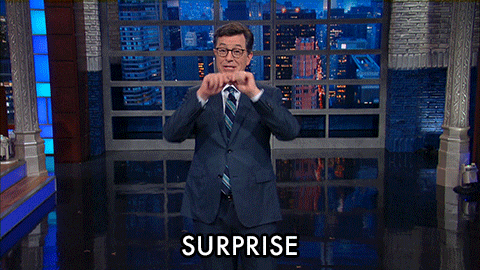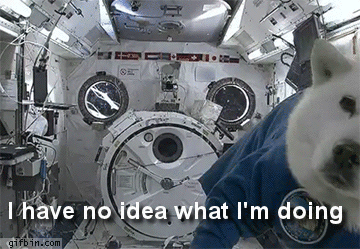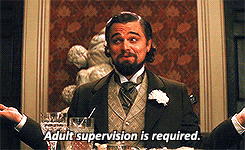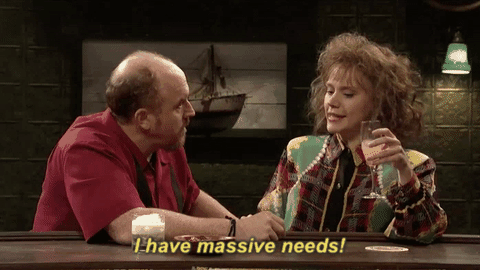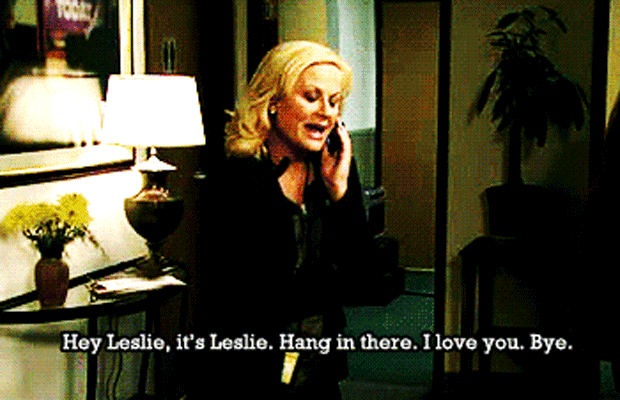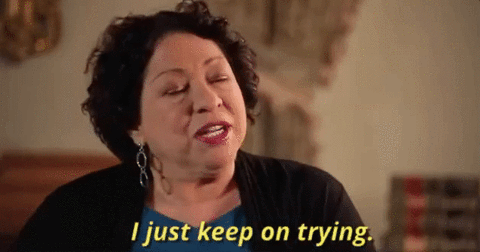As someone with epilepsy, I am often faced with explaining my
condition. Sometimes people have never heard of it, while I find more
frequently that people have a more nuanced lack of understanding.
There’s nothing wrong with not knowing about epilepsy—I would never
expect anyone to have a detailed understanding of a medical condition
they don’t have. I am writing this to give you the inside scoop about
epilepsy and answer questions you might be too afraid to ask. I've faced
some unique challenges, especially when my seizures were not well
controlled. Now that I've had time to get my medication just right, my
seizures do not effect my life as much as they used to, but some things
are still different. Please note that everyone with epilepsy is very
different, and this may not be a universal picture of epilepsy. Let’s
get started with some basics and then dive in.
1. What epilepsy is
A seizure is a misfiring of neurons in your brain, which can be provoked by head trauma, high fevers, and many other things. However, epilepsy is a seizure disorder where someone has had more than two unprovoked seizures. Unprovoked seizures are your brain’s way of saying “SCREW YOU FOR NO REASON IN PARTICULAR”
2. Not all seizures are the same, and no two epilepsy patients are identical
Not all seizures are tonic-clonic seizures, which are your standard issue medical drama plot twist. Having a spontaneous, bizarre dance party on the floor where no one else is invited is only one type of seizure. Episodes can look like many different things, including someone staring off into the distance or repetitively picking at their clothing. Because of this, every person with epilepsy has a unique experience.
3. Epilepsy isn't only diagnosed in childhood
I
started having seizures less than two years ago. It’s kind of uncommon
to develop epilepsy at this age, but it’s also not rare either.
4. There is no “one size fits all” treatment
Patients will often find themselves going through medication after medication without any improvement. Finding the right treatment, surgical or pharmaceutical, is sometimes very difficult. It definitely was for me.
5. You learn what triggers your seizures the hard way
There are certain things that can cause or “trigger” a seizure in someone with epilepsy. These vary from person to person, and generally you find out the hard way. Sleep deprivation? Find out the hard way. Alcohol? Find out the hard way. Strobe lights? Find out the hard way. After all, who doesn’t love a game of roulette? (Ps. Strobe lights trigger seizures in only 3% of epilepsy patients)
6. In epilepsy, an “aura” is not a glowing energy field
An aura is a warning of an oncoming seizure. It is a distinct sensory disturbance. The feeling is different for everyone—numbness, a certain smell, tingling, etc. Some people with epilepsy don’t have auras at all. For me, I feel nauseous, like my stomach is rising, and my right arm tingles and becomes numb. It’s a curse because it’s one of the worst feelings in the world and it really drags things out. However, it’s truly a blessing because it gives me time to get to a safe place to lie down and get help.
7. Seizures are... gross
Cw: graphic. Seizures are not pretty and I always feel bad for people who have to watch. You might bite your tongue or lip and bleed profusely. You might throw up. You might pee yourself. It definitely adds to the embarrassment of having seizures in public. It's all just a part of epilepsy that you have to get used to.
8. Seizure First Aid
It's ok if you don't know what to do! Let's learn. It's probably simpler than you think:
-Stay calm-Move objects out of the way
-Place something soft under the head
-Time the seizure
-When finished, roll the person onto their side
-DON'T restrain or put anything in their mouth (for the love of god, no one wants to wake up with your nasty wallet in their mouth)
9. You lose your independence
It’s
the little things I miss most, things I never expected to lose. You
can’t drive within 6 months of an unprovoked seizure. My mom even had to
drive me to a first date (she dropped me off around the corner). When
my seizures weren't controlled, I had to have a chaperone stand outside
the stall while I showered. I expected to go to college and gain a whole
new level of independence, but I got the exact opposite.
10. You feel like a burden
Because
I am not as independent, I have to rely on others. When I was first
diagnosed, I had to ask people to take me to every doctor’s appointment,
give me their notes from all the classes I missed, monitor me in the
shower, interrupt their fun party night with a seizure (lest we forget
Toga of 2015), or stay up until 4am to be with me. I find it especially
hard to ask this of my college friends. I pickpocket their fun
activities, study time, Netflix, sleep and gasoline. I have amazing
friends who are always supportive of me and say they don’t mind, but
deep down, there’s probably somewhere they’d rather be.
11. Epilepsy is a disability
You may not see it with your eyes: there's no wheelchair or walker. But epilepsy is a disability. If seizures are uncontrolled, you are constantly unsafe and limited. Recovery time in between seizures overlaps, rendering you unable to do much of anything. People with epilepsy are protected by the ADA (Americans with Disabilities Act) and may need special accommodations to carry out daily life.
12. Sometimes you are simply out of commission
I have to rest more than the average person. I can’t push myself like others do when feeling sick or excessively tired. It puts me at risk of having a seizure. Once I have one seizure, I am more likely to have another in the days following. This is another time I need to take a break. I’m not being lazy or blowing people off, my body and brain are truly not functioning properly. I hope people respect and understand that I have physical limitations that others don’t, and I have to act accordingly for my own health and safety. Please be patient.
13. You are scared
I like to think that I am courageous, but like every other human in
the world, I get scared. I don’t need sympathy, I only ask for your
respect and patience. I am scared that at any moment, I may have a
seizure. I am scared because sometimes I stop breathing during my
seizures; because when I come to, I don’t recognize anyone around me,
not even my best friends or my parents; because before and after seizing
I don’t know where I am; and I am scared that one day, I just won’t
wake up.
14. I've wanted to give up
I
was six months into unsuccessful attempts to get my seizures under
control. I was still having seizures while taking the medication, so why
did I even need to take them if they're not working? I thought that
maybe this would just be my life now, having seizures all the time with
no relief. I was constantly exhausted, failing my classes, and
miserable. I didn’t know if I could live that way—or if I even wanted to
live that way.
15. But I refuse to give up
I kept going when I felt lost. It took a long time to get control over my seizures, spending months trying different medications and adjusting doses until we got just the right balance. Once I made it through, it was all worth it. I have my life back. I still have certain limitations and struggles, which can be very frustrating. I still have seizures every once in a while, but only when I am sick. This totals a few seizures per year, compared to having unexplained seizures multiple times per week. Now I feel like myself again, jumping back into the activities, friendships and academics I love so much.
16. You are more than epilepsy
Epilepsy is a small part of who I am. Especially with my seizures controlled, I am many other things: a daughter, sister, friend, student, musician, EMT, cheerleader, dog owner, science nerd and writer. I have epilepsy, but epilepsy doesn't have me.




